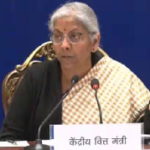Mandala Pooja is one of the most revered rituals at the Sabarimala Ayyappa Temple in Kerala. Celebrated with deep devotion, it marks the end of a 41-day period of spiritual austerity observed by Lord Ayyappa’s devotees. Millions of pilgrims gather for this sacred event, which symbolizes faith, self-discipline, and the pursuit of divine blessings.
Let’s explore the exact date, the profound significance, and the elaborate rituals associated with Mandala Pooja 2024.
When is Mandala Pooja in 2024?
In 2024, Sabarimala Mandala Pooja will take place on Thursday, 26th December, aligning with the 11th or 12th day of Dhanu Masam as per the Drik Panchang. This highly anticipated day is a pivotal moment for devotees, drawing them to the Ayyappa Temple in large numbers.
The Spiritual Significance of Mandala Pooja
Mandala Pooja symbolizes the culmination of a transformative 41-day spiritual journey undertaken by devotees. During this period:
Austerity and Simplicity: Devotees abstain from non-vegetarian food, avoid worldly pleasures, and wear simple black or blue attire to signify humility.
Daily Rituals: Regular visits to temples, prayer sessions, and chanting of Lord Ayyappa’s name deepen their connection with the divine.
This rigorous lifestyle encourages self-control, purifies the mind and body, and nurtures a profound spiritual growth.
Rituals on the Day of Mandala Pooja
On the day of Mandala Pooja, the temple resonates with divine energy as devotees participate in elaborate ceremonies, including:
Special Poojas: Offerings and prayers are made to Lord Ayyappa with utmost devotion.
Abhishekams: Ritual purification with sacred substances such as milk, honey, and sandalwood.
Lighting of Lamps: Thousands of lamps illuminate the temple, creating a mesmerizing and spiritual ambiance.
The temple itself is adorned with intricate decorations, and the air is filled with the sound of devotional chants, heightening the sanctity of the occasion.
Why Mandala Pooja is Spiritually Transformative
The observance of Mandala Pooja instills qualities like self-discipline, humility, and devotion. It is believed that participating in this ritual brings:
Inner Peace and Purity: The austerity period helps devotees cleanse their mind and soul.
Divine Blessings: Faithful observance is said to attract prosperity, peace, and grace.
Although Mandala Pooja marks the conclusion of the 41-day fasting period, it is not the end of the temple festivities. Devotees eagerly await the subsequent Makar Vilakku celebration, which holds its own spiritual significance.
Sabarimala Mandala Pooja stands as a testament to the enduring power of faith and spirituality, drawing millions to its divine fold year after year.



